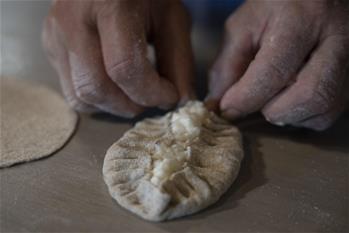CHICAGO, Sept. 4 (Xinhua) -- Overweight adolescents, considered particularly susceptible to stress eating, actually ate less when exposed to a lab stressor, and the foods they eschewed were the high fat and sugar options, a study posted on the website of the University of Michigan (UM) on Tuesday showed.
The study, involving about 60 kids, further found that kids who produced the most cortisol after the stressor saw the biggest appetite reduction, eating about 35 percent fewer calories in the two hours after the stressor.
"These are really exciting findings because they give us a chance to observe eating patterns when adults are exposed to stress, which is a very important factor in childhood obesity, long-term cardiovascular risk and type 2 diabetes risk," said principal investigator Rebecca Hasson, associate professor of movement science at the UM School of Kinesiology.
Results were similar whether adolescents in the study were monitoring their food intake or not.
But that didn't happen among the dieters, and the results suggest that a biological response, such as the flood of cortisol or the satiety hormone leptin, drove the adolescents' reduced appetite.
"This doesn't mean stress kids out and they'll lose weight. This is in the short term only," Hasson noted. "They may eat more calories later. Typically, many kids did say they turned to food when stressed, so maybe this was a time effect."
Even if the cortisol spike didn't cause overeating, it's still metabolically unhealthy, she said. Much work remains to see who's susceptible to big cortisol spikes and the long-term effects of stress.
The study has been published in Psychosomatic Medicine.

















